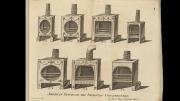“I’ve always been an impatient person,” says Martin Puchner, Wien professor of drama and of English and comparative literature. His impatience has served him well. A whirlwind of energy, the 43-year-old Puchner has already written three books—on theater, modernist literature, and philosophy—and edited many more, including the six-volume, 6,000-page third edition of the Norton Anthology of World Literature (2012). That “dizzying, impossible” project seemed an “insane endeavor, yet I found the scope of it thrilling,” he says; with seven co-editors and 10 consultants spread across the globe, e-mails poured in at any hour, day or night. Born in Nuremberg, Germany, he attended an alternative, Waldorf school and acted, directed, and composed music for many theatrical productions in high school and college. A restless, passionate traveler, Puchner did undergraduate work at Konstanz in Germany, Bologna in Italy, and the University of California at Santa Barbara and Irvine. He never actually received a bachelor’s degree, but earned a Harvard Ph.D. in comparative literature in 1998. While teaching at Columbia from 1998 until 2010, he evolved into a scholar of theater. He’s been at Harvard since then; as chair of the Committee on Dramatics, he’s helping to shape a new concentration (if not department) in theater. Puchner plays piano, violin, and viola for enjoyment, and lives with his longtime companion, professor of English Amanda Claybaugh, while globetrotting to research his next book, on the relation of literary works to geography. “Literature is invading the world, transforming the world,” he says, “naming places, and changing people’s relationship to where they live.”
Harvard Portrait: Martin Puchner

You might also like
Veteran MIT Administrator Named University Secretary
Suzanne Glassburn will manage the work of the Corporation and Board of Overseers.
The 2025 Pulitzer Prizes Announced
Winners across five categories, from commentary on Gaza to criticism on public architecture
Harvard Medalists
Four people honored for exceptional service to the University
Most popular
Explore More From Current Issue
The Franklin Stove—A Historical Climate Change Adaptation
Historian Joyce E. Chaplin reinterprets an early era of invention, industrialization, and climate challenge
Making Green Energy Projects Financially Viable
A proposed “green” swap enables decarbonization of emerging market development projects.








